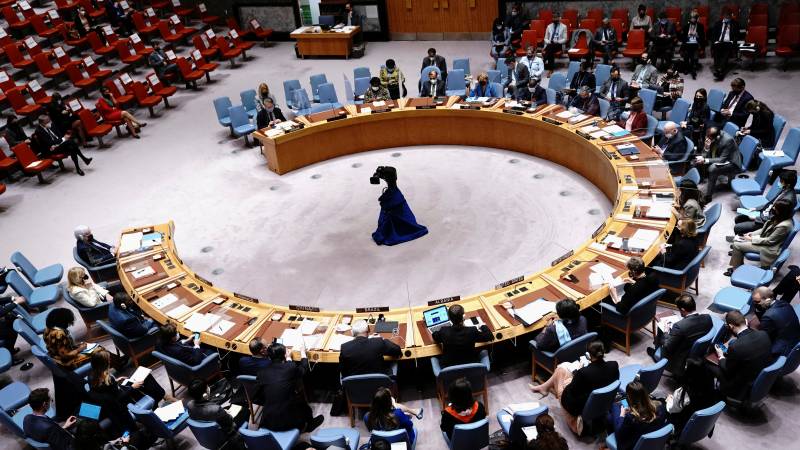In finding a solution to the Ukraine war, the diplomatic wheels are spinning. Last week, the prime ministers of Poland, the Czech Republic and Slovenia visited Kiev to meet with President Zhelensky. Israeli Prime Minister Bennett previously traveled to Moscow to meet with President Putin, who from time to time receives calls from Turkish President Erdogan and French President Macron.
US President Biden will visit Europe on Thursday to hold talks with the European Union and NATO. This raises the question: the UN is the foremost body for maintaining peace and security in the world. Where is it?
After World War II, dozens of nations agreed: war and destruction would never happen again on such a large scale. That is why, in the summer of 1945, they signed the newly established United Nations Charter. Since then, conflicts can be resolved with words instead of weapons.
Within the UN, that responsibility for peace and security rests with the Security Council. For example, in the past it was decided to condemn the invasion of Kuwait by Iraq in 1990 and to carry out peacekeeping missions in countries such as Lebanon, former Yugoslavia and Mali. The Security Council is made up of five permanent members: France, the United Kingdom, the United States, China and Russia. All five have the right to veto, thereby preventing them from making the proposed decision.
Russian veto
That is where the problem for the UN over the current war in Ukraine begins. Because Russia exercised its veto right when the Security Council wanted to condemn the Russian invasion of Ukraine a day later. The sentence did not limit the UN’s intention to intervene in the war in Ukraine.
UN Secretary-General Guterres said last week that it was “time to stop the atrocities and start moving towards peace and diplomacy”, but could not send a UN peacekeeping force to achieve that goal. Guterres could not even be sent as a negotiator.
However, that does not mean the UN chief can do anything, says former High Commissioner Ed Gronenberg. “As Secretary-General, Guterres has his own responsibility. The UN was established for such conflicts, and the war in Ukraine affects the whole world, and thus the climate, which Guterres considers very important. The longer this war lasts, the less you can do to the climate.” “
According to diplomat Robert van de Royer, Guterres’ personalities now play a role in the situation: “He has no moral authority and the authority of his predecessors, such as Kofi Annan or Doug Hammerskjold. They would have exerted more public pressure. Putin impressed, there is no quiet diplomacy, you should not expect miracles, but the UN Secretary General should remove all stops in this situation and Guterres is doing it. “
Review the veto rights
André Nollkaemper, professor of international law at the University of Amsterdam, points to the contradiction of the veto right. “The UN was created in 1945 because the permanent members of the Security Council have imposed that veto on them. The role of the UN has always been defined in conflicts involving veto partners.
That’s why Nolcamber thinks it’s time to reconsider that veto. “There is a French proposal that the veto partner should abstain from voting if he is involved in large-scale human rights abuses. 106 countries are now in favor. Such a review is not easily organized, but if you have a crisis it is necessary to initiate such a change. In the future, the UN in the field of peace and security The veto will not be an obstacle to .in own goals. “
Can the UN change the situation for the better in the short term? “It’s possible,” said former ambassador Groenenberg. “Because Guterres can still travel to Kiev or Moscow under his own responsibility and engage in dialogue. Russia will certainly not accept it, but if the United Nations allows it to happen now, it will not be of much importance to them in the end.”
Diplomat Van de Royer has called on the UN in the post-conflict period. Considers the role of diplomacy credible. “Sooner or later any peace agreement will require the approval of the UN Security Council, the world’s highest legislature for war and peace. But no one knows how many more of us will die.”

“Award-winning beer geek. Extreme coffeeaholic. Introvert. Avid travel specialist. Hipster-friendly communicator.”








